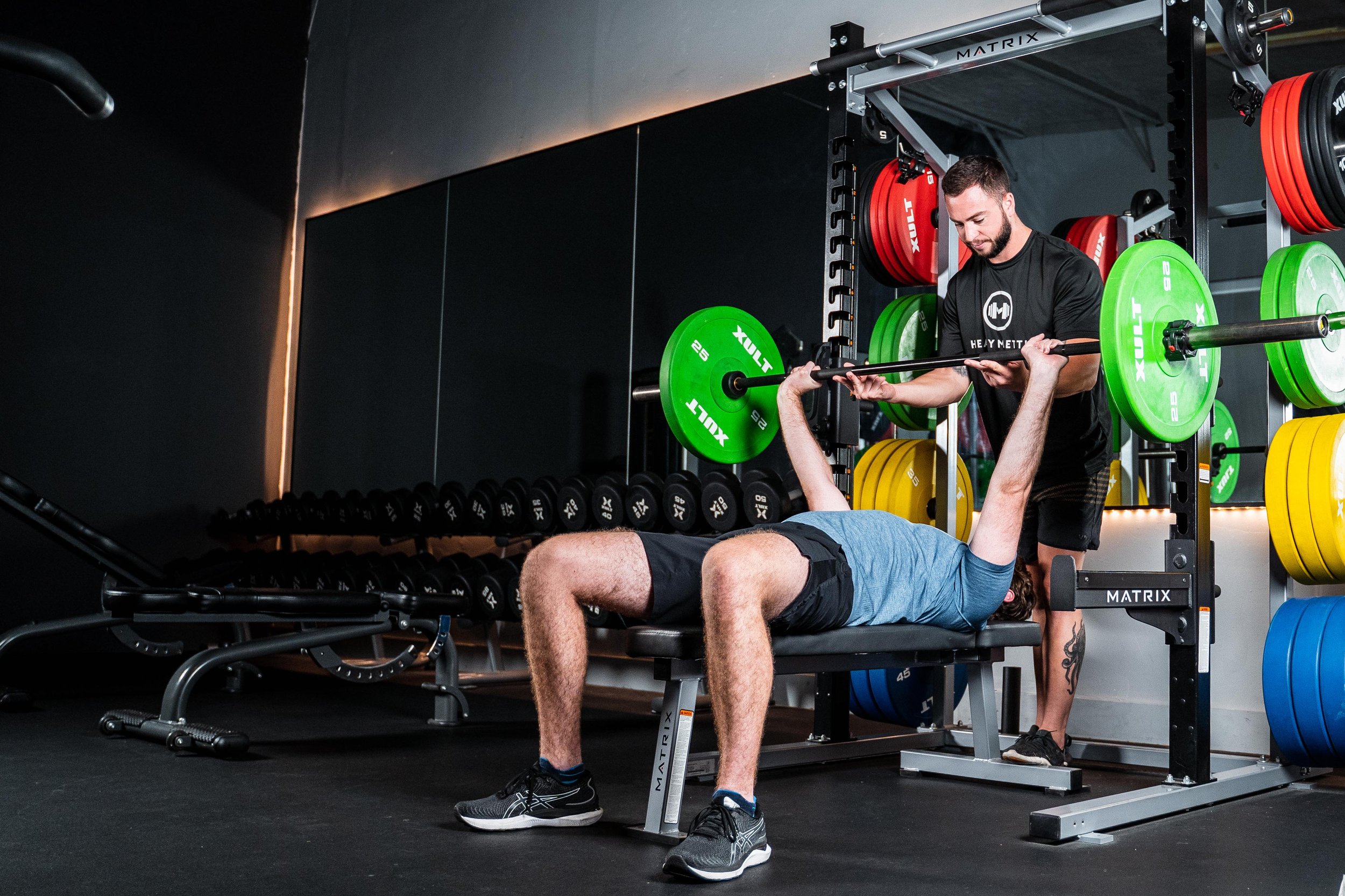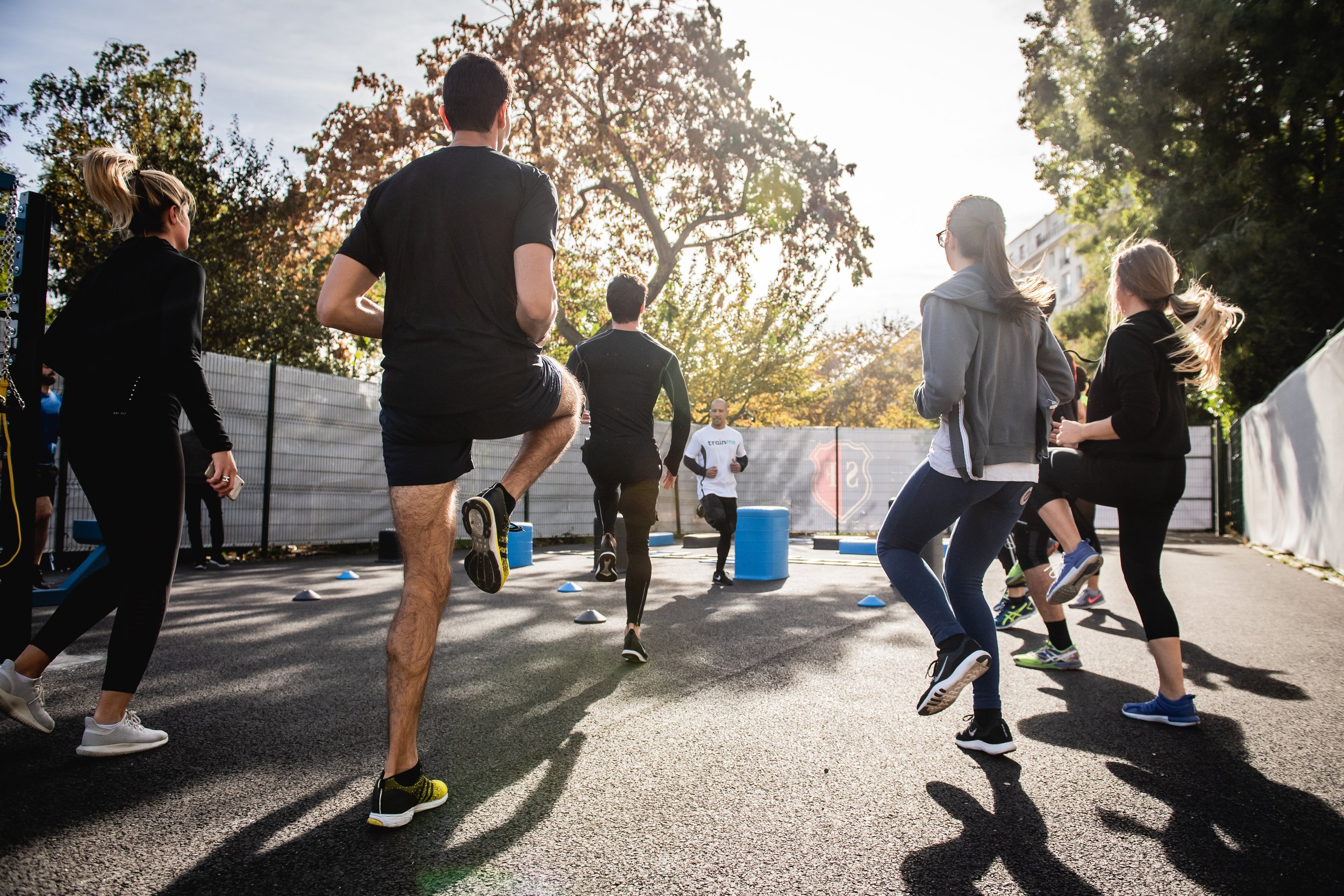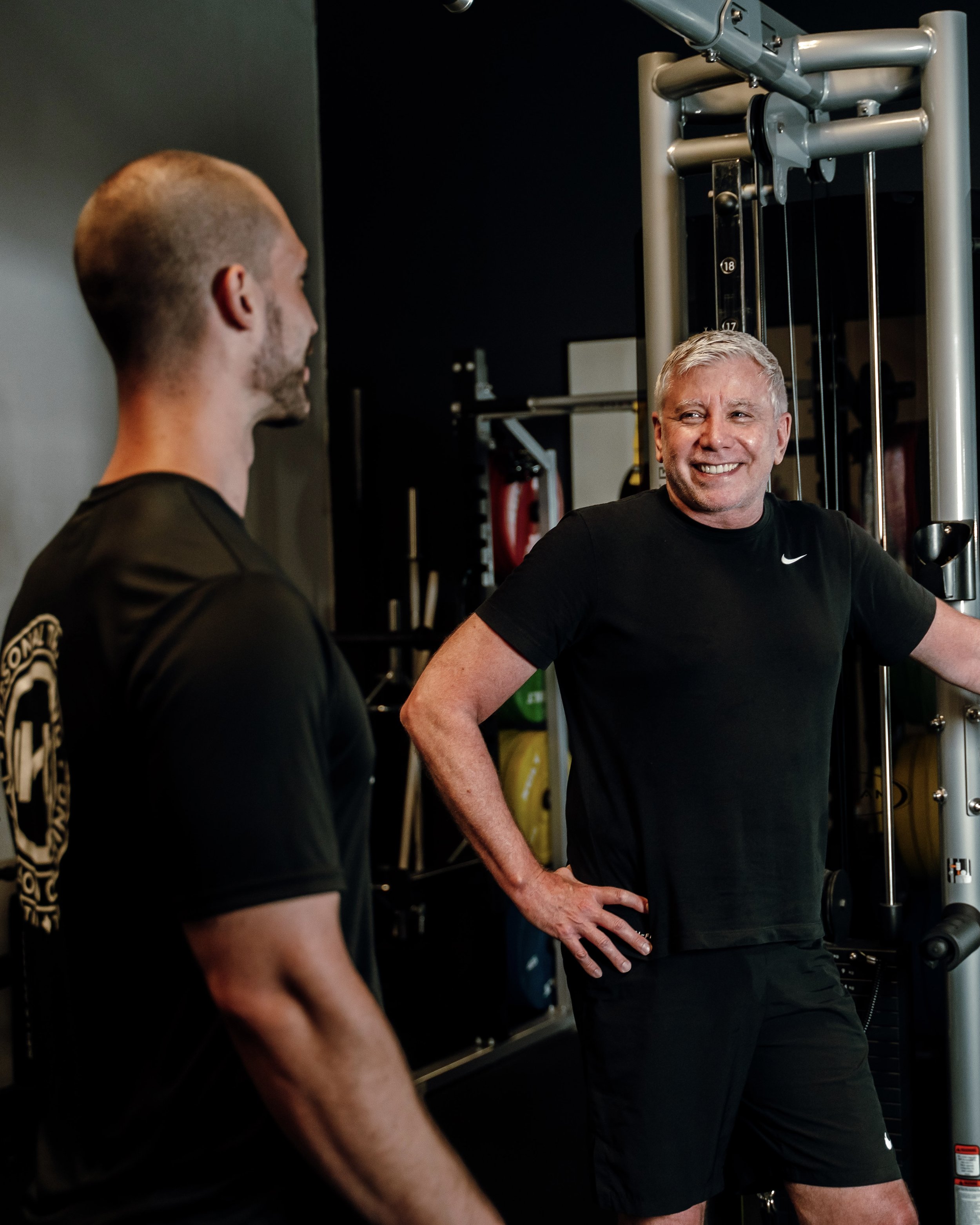How Many Personal Training Sessions Do I Need?
As a certified personal trainer, one of the most common questions new clients ask me is, "How many personal training sessions do I need?" The answer to this question isn't always straightforward, as it depends on various factors such as your goals, current fitness level, availability, motivation, and budget. In this post, we'll cover these topics to help you make an informed decision and start your fitness journey off on the right foot!
Investing in an expert-guided fitness regimen is a great step toward improving the quality of your life. Determining the frequency of your personal training sessions is equally as important as deciding who to trust with the design and implementation of those sessions.
Understanding Your Fitness Goals
Your fitness goals play a definitive role in determining the number of personal training sessions you need. If you want to lose weight, build muscle, or increase cardiovascular endurance, you may require more frequent sessions than someone who simply wants to maintain their current fitness level. Your personal trainer will be able to guide you in setting realistic goals and establish a timeline to determine the appropriate session frequency to achieve them.
Assessing Your Current Fitness Level
Your current fitness level is another important factor to consider. Suppose you're new to exercise or returning after a long break. In that case, you may benefit from more frequent sessions initially to learn proper technique, avoid injury, and efficiently improve your overall fitness.
Fewer sessions may be required for those already maintaining a consistent fitness routine but are looking to advance their workouts or target more advanced goals. These sessions provide opportunities to learn new techniques, fine-tune your existing routine, or periodically reassess your progress. Ultimately, the number of training sessions should align with where you are in your fitness journey and the degree to which you’d like to improve.
Schedule
Even if you have ambitious fitness goals, it's essential to consider your schedule and commitment level. You might opt for more frequent sessions if you're highly motivated and have ample time. However, if you're juggling a busy schedule, you may be interested in a hybrid approach of personal training sessions complemented by solo workouts to balance your fitness regimen with other obligations. When considering how frequently you'd like to participate in fitness training sessions, remember that the most effective training routine will be the one that enables the individual to be consistent with completing their workouts every week.
Motivation
If you're self-motivated and understand fitness principles well, you may require fewer sessions, using them primarily for guidance, form correction, and program updates.
More frequent sessions often benefit those who struggle with maintaining motivation or lack the confidence to exercise independently. Regular appointments with a personal trainer can provide a sense of accountability, which can be a powerful motivational tool. Also, a trainer can offer encouragement and celebrate your progress, further boosting your motivation.
Frequent Personal Training Sessions
Committing to frequent workout sessions can yield significant results over time. Consistency is key in any fitness journey, and regular physical activity can improve cardiovascular health, strength, flexibility, and overall body composition. If weight loss is your goal, frequent sessions can help increase your caloric expenditure, aiding in achieving a sustained calorie deficit when combined with a balanced diet. For those looking to build muscle, consistent resistance training stimulates muscle growth, increasing strength and muscle mass over time. Moreover, regular exercise has been linked to improvements in mental health, including reductions in symptoms of depression and anxiety.
It's important to note that the concept of "more is better" doesn't always apply to workouts. The body needs time to recover and adapt to the stress of exercise. Excessive training without sufficient rest can lead to decreased performance, fatigue, and even injury. Striking a balance between activity and recovery is vital. This is where the expertise of a fitness professional can prove invaluable, as they can design a program with optimal training frequency based on your individual needs and goals. Trainers can also monitor your progress and adjust your program as needed, ensuring that your workouts are sufficiently intense while maximizing efficiency.
Less Frequent Training Sessions
Less frequent personal training sessions can be a sufficient approach for individuals with a knowledge of fitness, exercise science, and a foundation of discipline. This approach allows you to take responsibility for most of your workouts while benefiting from professional guidance. In these scenarios, you might see your personal trainer once a week or even bi-weekly. During these sessions, your trainer can provide new workouts, assess your progress, correct your form, and adjust your training plan. This model combines the independence of solo workouts with the valuable insight of a professional, making it a cost-effective solution for many.
Consider your experience level when determining the appropriate frequency of your personal training sessions. Beginners will likely require more assistance and supervision, while more experienced individuals may find less frequent sessions to be sufficient.
Without the regular supervision of a trainer, it falls on you to ensure you're completing your workouts effectively and safely, thus requiring a greater degree of self-motivation and accountability. Less frequent sessions are best for those who are already comfortable in a gym setting, have a good understanding of exercise techniques, and possess the discipline to maintain a regular workout routine independently. More frequent sessions may be ideal if you're new to fitness or prefer more guidance and external motivation.
Group Sessions vs. One-on-One Sessions
Choosing between group sessions and one-on-one sessions often depends on personal preference, your specific fitness goals, and the level of individual attention you desire. Group sessions offer a dynamic and socially engaging environment. They can be highly motivating as you workout alongside others striving to reach their fitness goals. This sense of camaraderie can make workouts more enjoyable and foster a healthy sense of competition. Furthermore, group sessions are typically more affordable than one-on-one sessions, making them an excellent option for those on a tighter budget.
A group setting is a cost effective way to experience a guided workout. While they lack the individual experience, many may still benefit from the expert instruction.
On the other hand, one-on-one sessions provide a more personalized experience. Your trainer focuses solely on you, allowing for a more individual workout plan that addresses your unique needs and goals. Private training sessions are particularly beneficial for those with minimal weight training or exercise experience and those recovering from an injury.
Budget
Personal trainers offer expertise, individual attention, and professional consulting, and like other professional services, they are typically costly. Hiring a fitness professional is an investment in one's health; as such, you'll need to consider your budget when determining the frequency of your training sessions. More frequent sessions will naturally lead to higher expenses. However, many trainers or fitness centers offer packages or discounts for booking multiple sessions, which can make this option more affordable.
If you're on a tighter budget, less frequent sessions combined with independent workouts might be a more viable strategy. Group sessions, which typically cost less than one-on-one training, can also be a more practical option. It's essential to balance what you're willing and able to spend and the value you receive from your training sessions to ensure sustainable commitment to your fitness journey.
If the financial aspect of training isn't a primary concern for you and you'd benefit from your trainer guiding all of your weekly workouts, then you could sign up for four to five sessions per week. Learn more about the average cost of hiring a personal trainer in Austin in our blog post.
The Role of the Personal Trainer
Most trainers will offer a fitness consultation before beginning a training routine with a new client. This consultation is often used to establish goals, conduct physical assessments, and discuss health/injury history. During the initial consultation, trainers may also recommend how often a client should participate in a training regimen and, ultimately, how many training sessions they will need.
If you're new to fitness, a trainer can provide the necessary instruction and supervision to ensure safe and effective exercise, which may require more frequent sessions initially. For those who are more experienced, a trainer can offer advanced techniques, varied routines, and ongoing motivation, potentially reducing the frequency of required sessions. Regular check-ins with your trainer allow for adjustments to your program based on your progress and changing needs.
Finding the Right Session Frequency
Ultimately, the number of personal training sessions you need to participate in will be determined by experience, current fitness level, availability, and budget. As a general guideline, if you're new to exercising, you might start with two to three training sessions per week, and as your comfort and fitness levels improve, you can adjust this frequency. To ensure the quality of your sessions, regularly reassess your goals with your personal trainer, stay consistent, and remember to enjoy the journey!
*Please note that I am not a medical professional and you should always consult with your doctor before beginning a personal training regimen.






